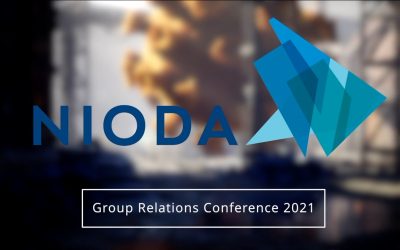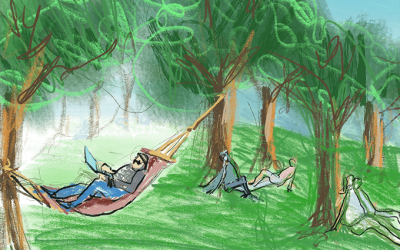Complexity, Creativity and Community in a Networked World
NIODA Group Relations Online Working Conference
Live, interactive and online
3, 8, 9, 10 & 12 November 2021
This group relations conference invites us to discover our creative capacity in an online working environment. It also seeks to understand a particular challenge of remote or hybrid work; to find and create online places, where we can connect with others to build a sense of community within and alongside our work organisations.
We live in a complex, uncertain and rapidly changing world which requires each of us to think creatively and innovatively about how to adapt to changing conditions. The pandemic provides ample evidence of this capacity: such as when working arrangements pivoted from school and office to home; the resurgence of local communities that provided support during social distancing; and the emergence of virtual orchestras and choirs.
For many of us, the impact of the pandemic has both opened and closed our world. By this we mean that the restrictions in place to minimise the spread of the pandemic have meant that many have moved to working from home, and simultaneously many events that were previously held ‘in the room’ have shifted online. In other words, we can undertake work, attend events and connect with others, both local and global, without leaving home. This ever-present connectivity invites an exploration of separation and togetherness; how it influences the way in which individuals engage with others; and, how communities form, develop and interact under such conditions. If the paradox of being and not-being together can be held in a good-enough way, the online or hybrid work environment may become a crucible for creativity.
The theme of the conference, Complexity, Creativity and Community in a Networked World, seeks to explore these challenges of hybrid and remote working. We invite you to join us in creating places within this conference to experience and make sense of group and social dynamics in a networked world.
Infinte stretches
Indigo shifts to lighter blue
Then darker hues emerge.
The Milky Way stretches southeast to northwest
As evening brings the world to rest
And in my place, I feel most blessed
Beneath the Southern Cross
And how I wish that all on earth
Might feel a place of peace and worth
Amidst the pain that life can bring
To find a place where souls can sing.
Susan Long
APPROACH
Learning from experience
A group relations conference is not like conventional conferences, in that there are no keynote speakers, paper or poster presentations. The conference is conceived of as a temporary organisation, where members can learn from experience about how authority is taken up and experienced, and how leadership is exercised as they undertake activities related to the purpose and primary task of the conference.
You will not be ‘given’ concepts such as complexity, creativity and community, instead you will be invited to experience and make sense of these concepts in real time: emotionally, motivationally and cognitively.
Learning opportunities might include an exploration of questions such as:
How do we locate ourselves in online places?
How might we connect with others to build a sense of community within and alongside our work organisations?
How might creative practices (whether through words, images, or music) enable new ways of thinking?
How do creative practices sit alongside habitual practices?
The conference is for all those interested in understanding more about group and organisational dynamics, particularly in relation to the theme of the conference*. This includes managers, organisational consultants, researchers, scholars, board members, workers, professionals, students and interested others.
Participants will receive a Certificate of Completion from NIODA following the conference.
* We advise applicants who are undergoing significant personal stress to postpone attendance, as Group Relations Conferences can, at times, be an intensive emotional experience.
DESIGN
Conference purpose and primary task
The purpose of the conference is to provide an opportunity to study the ways in which we find and create a sense of community in an online environment.
Conference staff and members will work on the primary task of the conference, which is to provide opportunities to discover creative potential as we study the emergence of community in this temporary organisation.
Conference Concepts
The conference is underpinned by group relations theory which focuses our attention on leadership, authority, task, and the regulation of organisational boundaries, as well as a complexity perspective which directs our attention to self-organising processes and networks of social, emotional, psychological, and political relationships. These two conceptual bases will enable us to explore how we take up roles and experience communities at work in this temporary organisation, and to experiment with ways of enabling creativity to emerge and flourish.
Primary task. As well as the conference primary task, each event in the conference will have a primary task. This enables an exploration of how tasks are taken up across the temporary organisation.
Role. Instead of focusing solely on a person, in group relations the focus is on a person-in-their-role. Role is where a person, the organisation, its purpose, and its context come together to create an experience that is unique to a person in their role. This enables an inquiry into the formal or informal role a person is taking up at a particular time.
Authority. In an organisation, authority is the right to make decisions which are binding on others. Authority can come from above (formal authority), from below or around (endorsed authority) and from within (personal authority).
Place. In this online conference, we consider the online meeting room as a place in potentiality, in that it will become a place on the arrival of people who have experiences and create meaning there.
Group dynamics. The study of conscious and unconscious group dynamics is enabled through an iterative cycle of acting, observing and reflecting on how people take up roles in groups and organisations.
Complexity. Complexity describes the behaviour of a system or environment that comprises many parts which interact with each in multiple ways. Complex environments require adaptive capacity to moderate and respond to competing and fast-changing demands on an organisation.
Creativity. Creativity is the way in which seemingly disparate, chaotic elements accumulate around a selected fact, giving new meaning to both the chaotic elements and the fact selected.
Community. Communities emerge as self-organising members who are ‘distinct-from’ each other and reach a coherence of unity in being ‘together-with’ each other. We can think of members of communities as citizens with equal rights, who interact and affect each other in a reciprocal way.
Conference Events
The conference comprises a series of events which are designed to enable an exploration of the conference primary task, to discover creative potential as we study the emergence of community in this temporary organisation.
Events include:
Plenary discussions – for the conference as-a-whole as well as for specific events
Study groups – experiential ‘here and now’ events to enable the study of conscious and unconscious group dynamics
Review Groups – reflective ‘there and then’ events for members to reflect on their experience of taking up roles in the conference
Social Dreaming – the practice of sharing, associating to and linking dreams in a matrix in order to identify organisational trends and social dynamics through the associative unconscious.
Community Event – offers members an experience of self-organising, to develop our understanding of how communities form, develop and are sustained; and, to study the relatedness of community to other forms of organisation in an online setting.
Application Groups – for members to consider how they might apply their learning as they transition out of the conference and back to their workplaces and community lives.
STAFF
Conference Directorate

Conference Director: Nuala Dent PhD
Nuala is a consultant, academic and artist, with a keen interest in the integration of art-based and systems psychodynamic approaches. She has worked in the field of leadership and management for over 15 years, supporting individuals and organisations to achieve their developmental goals. Her PhD research into the experience of a hybrid team, working at the intersection of face-to-face and online, places Nuala at the forefront of thinking about the opportunities and challenges for COVID-normal workplaces. Nuala works independently and is an Associate Faculty with NIODA. She has been on the staff of multiple group relations conferences and is a member of GRA and ISPSO.
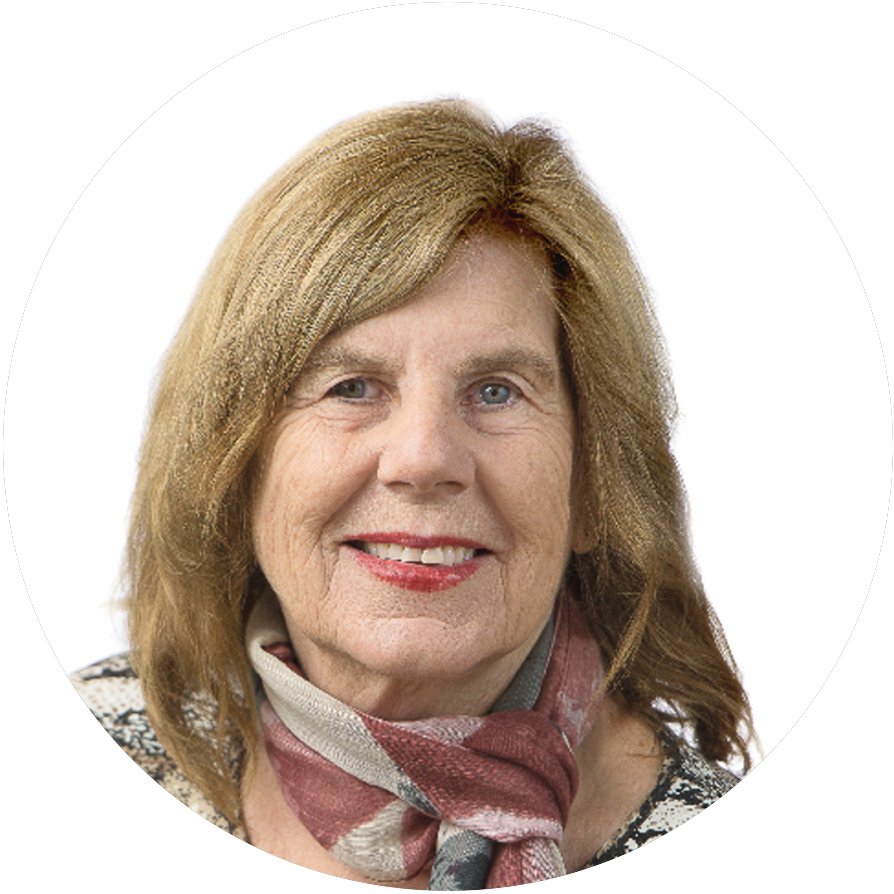
Associate Conference Director: Susan Long PhD
Susan Long is a Melbourne based organisational consultant and executive coach. She has consulted to organisational change in the health and justice sectors and coached senior executives across many sectors. She also works as a supervisor and coach for organisational development professionals in Australia and Singapore. Susan has published ten books and many articles in books and scholarly journals, is the General Editor of the journal Socioanalysis and Associate Editor with Organisational and Social Dynamics. She has over 35 years of experience with Group Relations, was the inaugural President of GRA, and a past president of ISPSO.
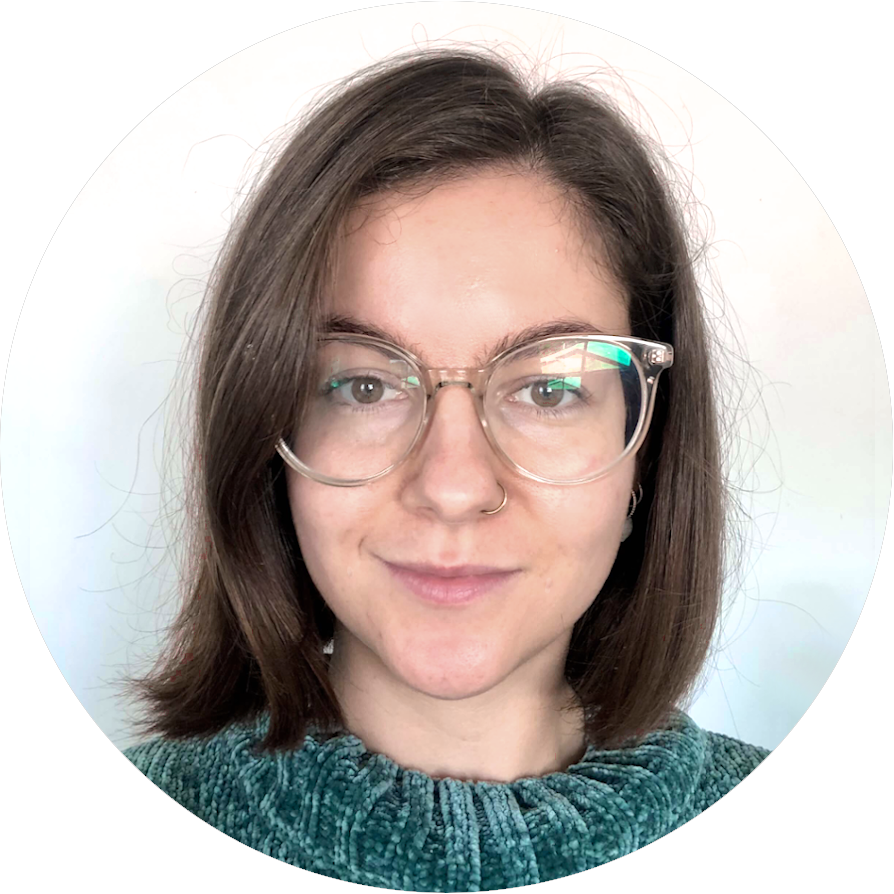
Director of Administration: Ellie Robinson BA
Ellie Robinson is a Western Australian based marketing professional, with a background in service and NFP marketing. In her current role, as Marketing and Administration Coordinator at NIODA, is responsible for student communications and NIODA’s key marketing strategies. She has a special interest in building connections with unique people across the globe through travel.
CONSULTANTS
Consultants to the events in the conference will be drawn from the Executive Directorate and a team of consultants that includes the following people:
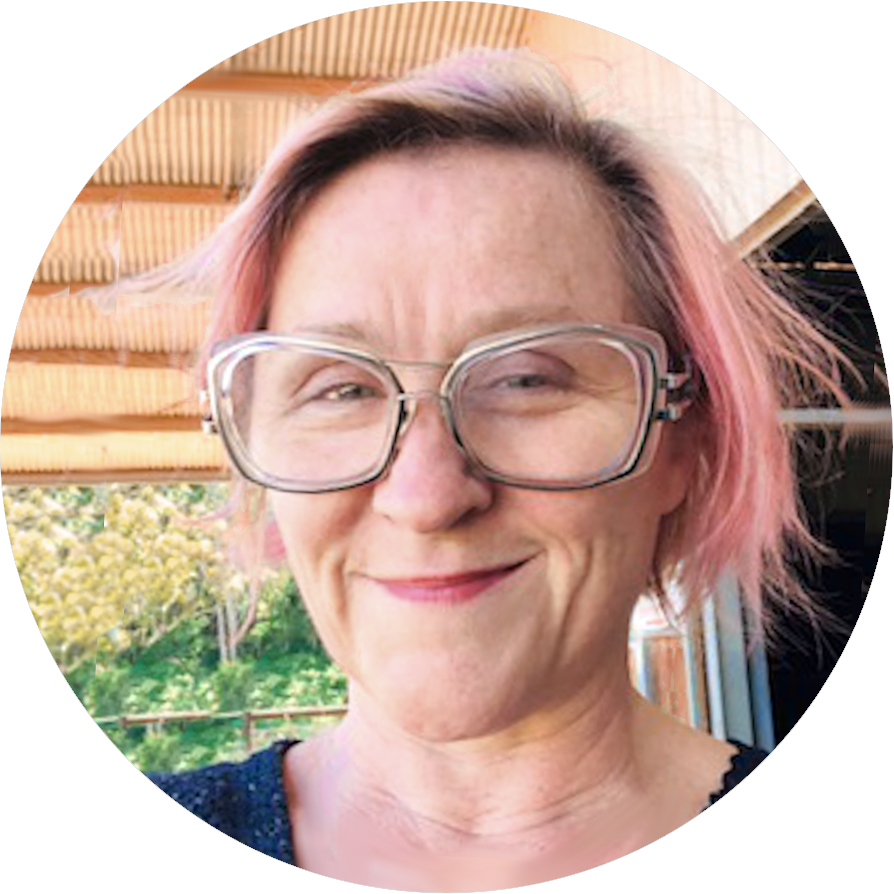
Cath McKinney PhD
Cath worked as a prison Chaplain with Women for the past four years, and has recently taken up a role with the University of Divinity coordinating and co-teaching the graduate awards in professional supervision. She did her PhD work in the area of disappointment and the lived experience of lack, and lives in Daylesford with her family and a host of other sentient beings. She loves the earth, growing food and enjoys the capacity we have to see and be seen, hear and be heard and love and be loved.
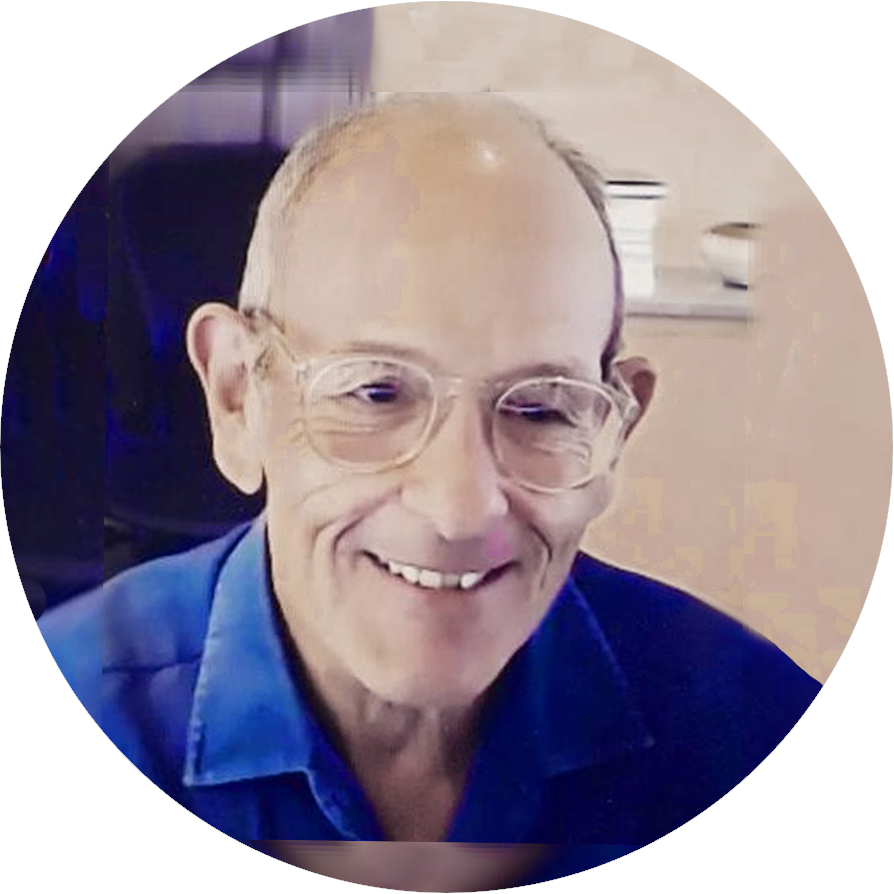
James Krantz PhD
James Krantz is an organizational consultant and researcher from New York, where he is Managing Principal of Worklab, a consulting firm focusing on strategy implementation and leadership development. His principal interests are with the impact of emerging trends on the exercise of leadership and authority; the social and technical dimensions of new forms of work organization; and the unconscious background to work and organizational life. Currently, Jim serves as Honorary Professor at the Higher School of Economics in Moscow; Chair, Editorial Committee of the Journal of Organisational and Social Dynamics; and Faculty, Dynamics of Consulting at the Wharton School.
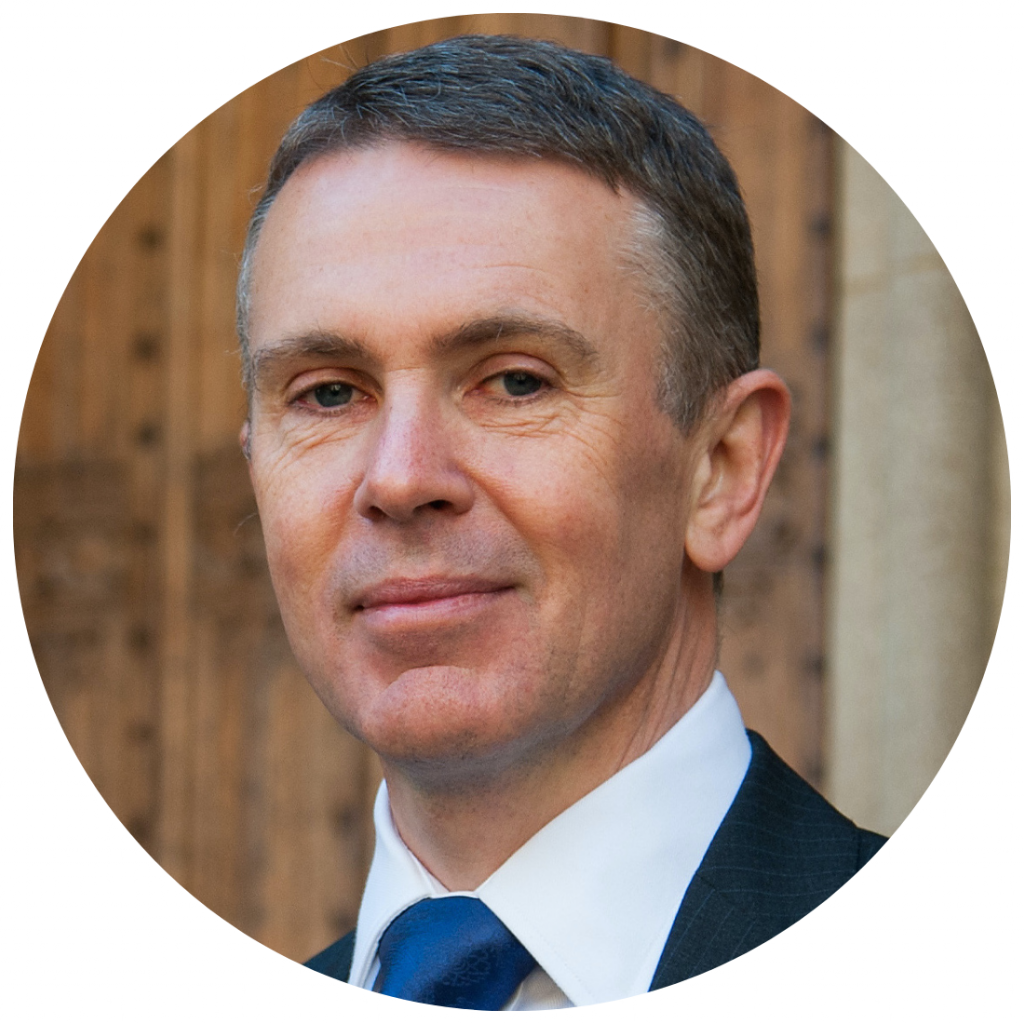
Prof Michael D Fischer PhD (London) MIGA FRAI FHEA PCC
Michael Fischer is a Professor of Organisational Culture and Leadership, an applied anthropologist, group analyst, psychoanalytic psychotherapist, and executive coach. He works extensively with senior leadership teams on relational and emotional dimensions of culture change in knowledge-intensive organisations. Michael holds a PhD in psychoanalytic anthropology from Imperial College London, and has held professorial positions at the University of Oxford, King’s College London, and the University of Melbourne. Before his business school career, he was NHS clinical director and lead consultant psychotherapist at major teaching hospitals in Manchester, Liverpool and London. He has a specialist interest in the transformational dynamics of highly effective workplace cultures.
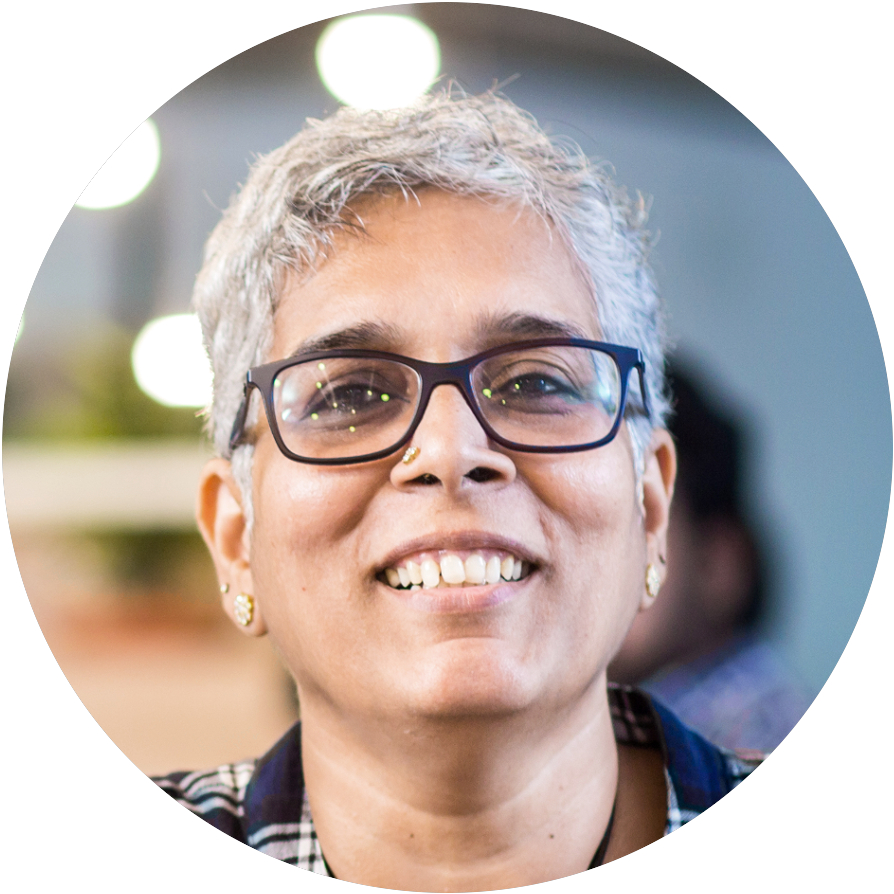
Sunitha Lal MLM
Sunitha Lal is the CHRO at Ather Energy and has more than twenty-five years’ of experience in the space of organisational development and people practices. She actively engages with and contributes to forums and platforms that focus on building Culture, Diversity & Inclusion, Mindful Leadership, and Organisational Behaviour. She has participated in GR conferences and workshops as a member and staff since 2015 and is an Associate Member of Group Relations India. She is a strong proponent of the oral tradition of storytelling and is the author of the book ‘Dotting the Blemish and Other Stories’, a collection of short stories about women’s lives embedded in patriarchy.
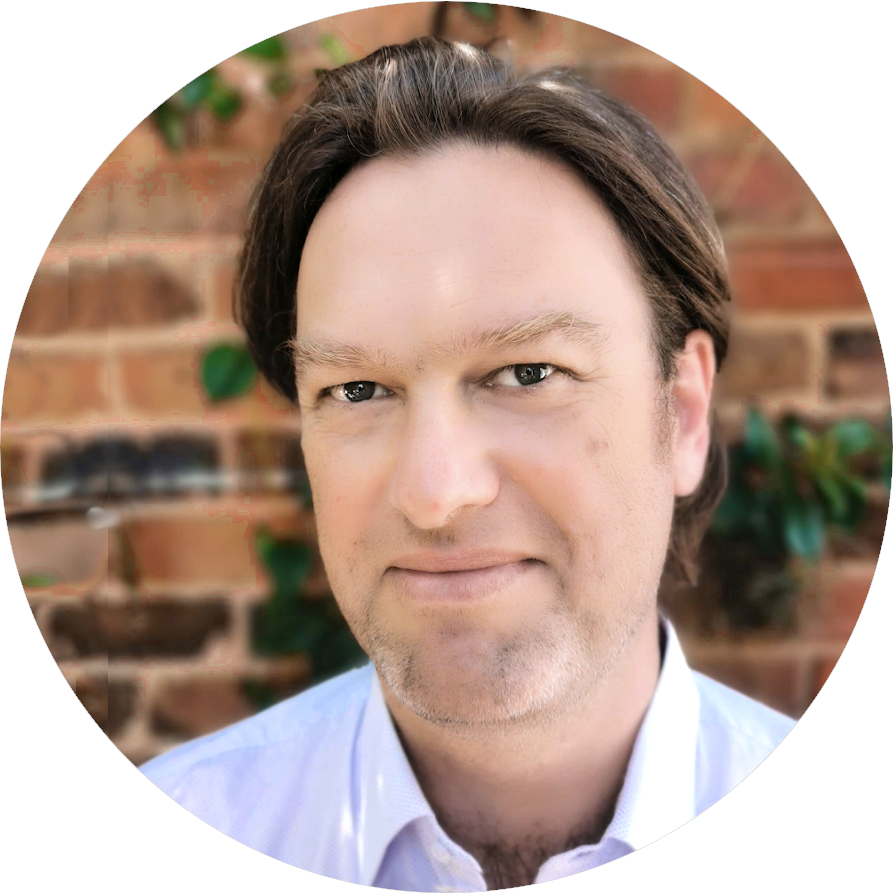
Thomas Mitchell BA, MA(HPS), MLM(OD)
Over the last several years Thomas has enhanced his extensive professional experience by learning from, and working with, leaders across the executive coaching, group dynamics, and systems psychodynamics fields. A graduate of the NIODA Master of Leadership and Management – Organisation Dynamics, Thomas combines a deep understanding of working in large organisations with a passion for supporting others as they work toward achieving their goals and gaining deeper awareness of their actions and drivers. Highly skilled in creating a safe environment to support participants explore their roles, Thomas manages the balance between empathy and candour allowing participants to feel secure whilst having their assumptions challenged.
REGISTER
Dates
Introductory Session: Familiarisation with the technology
Wednesday 3 November 2021
3 – 5 pm Melbourne 🇨🇰
4 – 6 am London 🇬🇧
12 – 2 pm Singapore 🇸🇬
12 – 2 am New York 🇺🇸
9:30 – 11:30 am New Delhi 🇮🇳
Live Interactive online Conference:
Monday 8 – Wednesday 10 November 2021 and Friday 12 November
10 am – 4 pm Melbourne 🇨🇰
11 pm – 5 am London 🇬🇧
7 am – 1 pm Singapore 🇸🇬
7 pm – 1 am New York 🇺🇸
4:30 – 10:30 am New Delhi 🇮🇳
Fees
Full fee AUD$1,500
NIODA Alumni/AODA Members and
Group Relations Australia Members AUD$1,200
Two or more people from the same organisation AUD$1,200
Bursaries
Please contact Ellie Robinson, Director of Administration for
information about partial bursaries for those unable to meet the full amount.
GRC@nioda.org.au
Cancellation Policy
Cancellations before 6 September 2021 receive 100% refund (less $100 booking fee). Cancellation before 4 October 2021 receive 50% refund. There is no refund available after 4 October 2021.
Enquires
Please contact Ellie Robinson, Director of Administration.
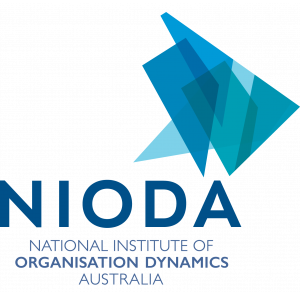
NIODA is a not-for-profit association whose primary purpose is delivering education for those specifically interested in understanding, applying and developing systems psychodynamic approaches to the improvement of work organisations. NIODA Academic offers a three-year, part-time Master of Leadership and Management (Organisation Dynamics) course, seminars and workshops. NIODA Consulting offers system psychodynamic-oriented consultancy to organisations, and NIODA Research conducts organisational research and an annual symposium.
The shadow of our limiting beliefs
The shadow of our limiting beliefs Sunitha LalThe shadow of our limiting beliefsAt a Group Relations Conference two years back, the Primary Task...
COVID, Our Teacher
COVID, Our Teacher Dr James Krantz COVID, Our TeacherA recent newscast about ‘COVID’ panic brought to mind an article that impressed me as an...
What does it take to be vulnerable online?
What does it take to be vulnerable online? Thomas MitchellWhat does it take to be vulnerable online?I find myself wondering about this again and...
What is a Group Relations Conference?
Complexity, Creativity and Community in a Networked World This video has been produced for the NIODA 2021 online group relations working conference....
The Lime Neighbourhood
At a recent online group relations conference, I had the opportunity to explore the concept of neighbourhoods. This blog will describe my experience and, I hope, stimulate thinking about how we create a sense of community in online places.
Artwork by Dr Nuala Dent
PO Box 287, Collins Street West,
Wurundjeri Melbourne 8007 Australia
+61 (0) 414 529 867
info@nioda.org.au
NIODA acknowledges the Kulin Nations, and respective Traditional Custodians of the lands we work on.
We pay our respects to Elders past and present, and recognise their enduring sovereignty which has, and continues to, care for Country.
NIODA welcomes the Uluru Statement from the Heart’s invitation to walk with Aboriginal and Torres Strait Islander peoples in a collective movement for a better future.




